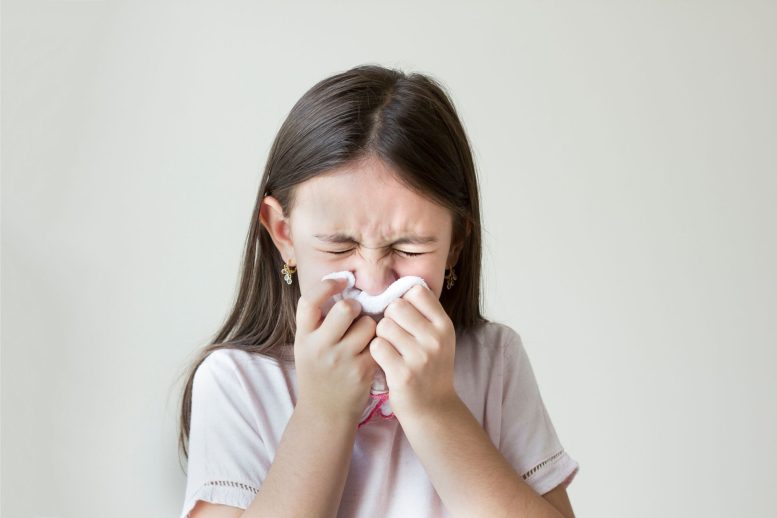
A study published in The BMJ finds that October-born children have higher flu vaccination rates and lower flu diagnosis rates, underscoring October as the optimal month for vaccinating young children against influenza, in line with existing health recommendations.
A new study indicates that October is the best time for young children to have annual flu shot.
A study recently published in The BMJ reveals that children born in October have a higher likelihood of receiving influenza vaccinations and a lower likelihood of being diagnosed with influenza, compared to children born in other months, according to findings from a US study.
The results suggest that birth month is associated with both the timing of flu vaccination and the likelihood of a flu diagnosis – and that October is the optimal time for young children to have a flu shot, in line with current recommendations.
Annual influenza vaccination is particularly important for young children, who are at higher risk of flu and severe infection requiring admission to hospital. Vaccination is recommended during September or October to maximise immunity during the peak flu season.
Among young children in the United States, preventive care visits tend to occur during birth months and are a convenient time to receive the influenza vaccine, but large scale studies of the optimal timing of vaccination are unavailable.
To address this, researchers set out to assess the optimal timing of influenza vaccination in young children.
Research Methodology and Results
Using health insurance claims data, they identified over 800,000 children aged 2-5 years who received an influenza vaccination between 1 August and 31 January during 2011-18. They then analyzed rates of diagnosed influenza among these children by birth month.
After accounting for a range of potentially influential factors such as age, sex, existing conditions, healthcare use, and family size, the results show that October was the most common month for children to be vaccinated.
Children born in October also had the lowest rate of influenza diagnosis. For example, among children born in August, the average rate of influenza diagnosis across flu seasons studied was 3% compared with 2.7% for children born in October and 2.9% for those born in December.
This is an observational study and the authors acknowledge that their findings are limited to insured children who received medical care. Nor can they rule out the possibility that other unmeasured factors may have influenced their results.
Nevertheless, results were similar after additional analyses to evaluate whether the relation between birth month and influenza risk was due to chance, providing greater confidence in their conclusions.
“Our findings suggest that US public health interventions focused on vaccination of young children in October may yield the best protection in typical flu seasons,” they say.
“The study’s findings are consistent with current recommendations promoting October vaccination,” they add.
Reference: “Optimal timing of influenza vaccination in young children: population based cohort study” by Christopher M Worsham, Charles F Bray and Anupam B Jena, 21 February 2024, BMJ.
DOI: 10.1136/bmj-2023-077076









“… among children born in August, the average rate of influenza diagnosis across flu seasons studied was 3% compared with 2.7% for children born in October and 2.9% for those born in December.”
Are those statistically significant differences? What is the standard deviation of the average influenza infection rate?
Roughly half of all medical research has been shown to be not replicable. This claim seems so unlikely as be be a statistical anomaly. I’d be surprised if anyone can replicate this claim.